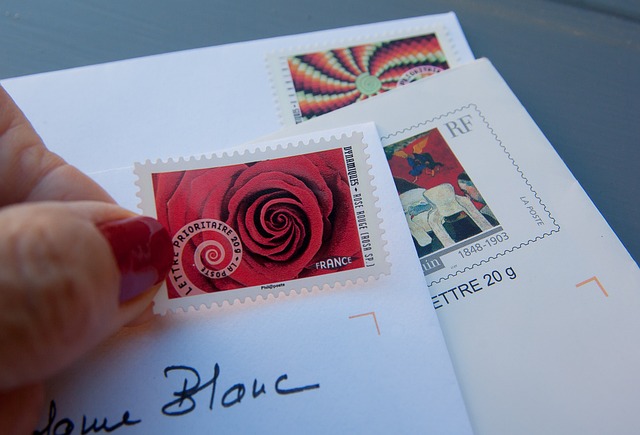In the UK, access to cultural content like art and literature faces significant barriers due to language, translation costs, and socio-economic factors. To address this, strategies promoting inclusivity through accessible translation services, essays, analyses, and digital platforms are crucial. Online platforms have revolutionized access to cultural content, with translation services making resources available in multiple languages. Physical spaces like museums and galleries must adopt universal design principles for accessibility. Cultural exchange initiatives between local communities and global artistic expressions enhance understanding. Educational outreach programs incorporating UK cultural essays and analyses empower young minds with diverse perspectives. Collaboration between arts organizations, academic institutions, and translation experts is key to creating inclusive environments. Future technology, such as AI-powered translation tools and VR/AR experiences, will further enhance equitable access to UK cultural heritage. Efforts like these have already led to increased accessibility and attendance in cultural institutions.
In today’s diverse society, ensuring equal access to cultural content is paramount. The UK, with its rich artistic heritage, faces challenges in making art, literature, and historical sites accessible to all. This article explores various aspects of enhancing accessibility, from understanding cultural barriers and the crucial role of translation services for inclusive experiences, to digital initiatives and design considerations for physical spaces. We delve into community engagement, educational outreach, collaborative partnerships, future trends, and case studies showcasing successful accessibility enhancements within UK cultural sectors, emphasizing the importance of UK cultural essays and analyses alongside translation services.
- Understanding Cultural Barriers: Uncovering Challenges in Accessing Art and Literature in the UK
- The Impact of Language: Why Translation Services are Essential for Inclusive Cultural Experiences
- Digital Initiatives: Exploring Online Platforms to Broaden Cultural Reach
- Making Physical Spaces Accessible: Design Considerations for Cultural Institutions
- Community Engagement: Building Local Bridges for Global Culture
- Educational Outreach: Empowering Young Minds through Cultural Essays and Analyses
- Collaboration and Partnerships: Uniting Arts, Academics, and Translation Experts
- Future Trends: Technology's Role in Shaping Equitable Cultural Access
- Case Studies: Success Stories of Enhanced Accessibility in UK Cultural Sectors
Understanding Cultural Barriers: Uncovering Challenges in Accessing Art and Literature in the UK

In the UK, access to cultural content such as art and literature faces significant barriers that often exclude diverse segments of the population. One major challenge lies in the language and translation services available. Many cultural works are predominantly in languages other than English, and while translation services exist, they may not always be readily accessible or affordable, creating a divide between those who can afford high-quality translations and those who cannot. This digital era demands inclusive solutions; without effective translation, non-English speakers risk being left behind in the cultural sphere.
Moreover, socio-economic factors play a pivotal role. Financial constraints often limit access to cultural resources, with expensive books, exhibitions, and events acting as barriers for low-income individuals. This is further compounded by geographic disparities where rural areas may have limited access to cultural institutions and digital platforms, widening the cultural gap between urban and rural communities in the UK. Understanding these challenges is crucial in designing strategies that promote inclusivity and ensure everyone can engage with and benefit from the UK’s rich cultural tapestry through essays, analyses, and accessible translation services.
The Impact of Language: Why Translation Services are Essential for Inclusive Cultural Experiences

Digital Initiatives: Exploring Online Platforms to Broaden Cultural Reach

In today’s digital era, exploring online platforms is a game-changer for enhancing accessibility to cultural content in the UK. Digital initiatives have opened doors to a vast array of resources, enabling folks from diverse backgrounds to navigate and engage with cultural essays and analyses from around the globe. Websites, apps, and social media channels offer vibrant, bustling communities where art, literature, and historical insights intertwine, fostering a rich tapestry of knowledge and appreciation.
Translation services play a crucial role in this digital revolution. By making cultural content accessible in multiple languages, these services break down barriers and ensure that UK residents from various ethnic and linguistic backgrounds can participate fully. This inclusive approach not only broadens cultural reach but also enriches the nation’s collective understanding and appreciation of global art, history, and literature, creating a more connected and harmonious society.
Making Physical Spaces Accessible: Design Considerations for Cultural Institutions

Making cultural institutions accessible to all is a key aspect of enhancing inclusivity in society, especially in the UK where diverse communities thrive. Physical accessibility plays a pivotal role in this regard, ensuring that individuals with various abilities can fully engage with artistic and cultural offerings. When designing or redesigning spaces for cultural purposes, such as museums, galleries, and theatres, architects and planners must consider universal design principles to cater to everyone.
This involves creating environments with flexible layouts, suitable lighting, clear signage, and barrier-free pathways. For instance, wheelchair accessibility is fundamental, but so is ensuring that visually impaired visitors can navigate the space audibly or through tactile maps. Providing multiple entry points and well-spaced exhibits can benefit those with mobility issues while offering different perspectives to able-bodied visitors. UK Cultural Essays and Analyses Translation Services can also play a role in making content accessible by translating information into various languages, fostering inclusivity for visitors from diverse ethnic backgrounds.
Community Engagement: Building Local Bridges for Global Culture

In an increasingly globalized world, fostering cultural exchange is more important than ever. Community engagement plays a pivotal role in enhancing accessibility to cultural content, especially within the UK. By building bridges between local communities and global artistic expressions, we can create a vibrant tapestry of cultural understanding. This involves organizing events that celebrate diverse heritages, inviting international artists for residencies, and promoting cross-cultural dialogue. Such initiatives not only enrich the lives of participants but also contribute to the UK’s reputation as a hub for cultural essays and analyses.
Translation services are integral to this process, acting as a catalyst for global culture to find its place in local communities. They facilitate the sharing of ideas, stories, and artistic expressions across language barriers, ensuring that cultural content is accessible to all. This collaboration between community engagement efforts and translation services can foster a deeper appreciation for different cultures, breaking down perceptions and promoting inclusivity. It also encourages the creation of UK-specific cultural analyses that resonate on an international level, further enhancing the global reach and impact of local artistic initiatives.
Educational Outreach: Empowering Young Minds through Cultural Essays and Analyses

In today’s diverse society, it is imperative to foster cultural understanding among the younger generation. Educational outreach programs that incorporate UK cultural essays and analyses play a pivotal role in achieving this. These initiatives empower young minds by providing access to diverse perspectives and historical contexts, enriching their knowledge of the world around them. By offering translation services alongside these educational resources, we ensure that no student is left behind due to language barriers. This inclusive approach broadens their intellectual horizons and cultivates empathy for different cultures, fostering a more tolerant and globally-minded community.
Curriculum integration of UK cultural essays and analyses translates into engaging discussions, critical thinking exercises, and creative projects that spark curiosity and encourage students to explore the complexities of various societies. Moreover, translation services act as a bridge, enabling students from diverse linguistic backgrounds to actively participate in these activities, making cultural education accessible to all. This inclusive strategy not only enhances learning outcomes but also prepares students for a globalized world, where understanding different cultures is essential for success and harmony.
Collaboration and Partnerships: Uniting Arts, Academics, and Translation Experts

Collaboration between arts organizations, academic institutions, and translation experts is pivotal in enhancing accessibility to cultural content, especially for diverse audiences within the UK. By joining forces, these entities can create inclusive environments that celebrate and share various cultural expressions. Arts venues, museums, and galleries can partner with universities to develop educational programs that engage students while making cultural content more accessible to the public.
Translation services play a vital role in this collaboration, ensuring that content is not only accessible but also culturally sensitive. UK Cultural Essays and Analyses, for instance, can benefit from professional translation services to adapt texts for non-native speakers, thereby fostering a deeper understanding of diverse cultures. This collaborative approach promotes a richer cultural landscape, encourages intellectual exchange, and broadens perspectives, ultimately enriching the lives of everyone in the UK.
Future Trends: Technology's Role in Shaping Equitable Cultural Access

In the future, technology will play a pivotal role in enhancing equitable access to cultural content, especially in the UK. With advancements in digital platforms and translation services, cultural essays and analyses from diverse regions can be made readily available to global audiences. AI-powered tools can facilitate the translation of written works, making it easier for non-native speakers to engage with literature, art history, and cultural critiques. This shift towards accessibility is crucial, as it promotes an inclusive environment where people from all backgrounds can appreciate and contribute to the rich tapestry of UK cultural heritage.
Furthermore, virtual reality (VR) and augmented reality (AR) technologies have the potential to revolutionize how we experience cultural content. UK-based cultural institutions can leverage these tools to create immersive exhibits and performances, enabling remote audiences to engage with art, history, and culture in novel ways. This integration of technology not only enhances accessibility but also fosters a deeper connection between diverse communities and the UK’s cultural offerings.
Case Studies: Success Stories of Enhanced Accessibility in UK Cultural Sectors

In recent years, numerous UK cultural sectors have successfully implemented strategies to enhance accessibility, leading to transformative outcomes. One notable example is the British Museum’s initiative to provide audio descriptions and sign language interpretation for exhibits, allowing visitors with visual impairments to fully engage with the collections. This approach not only increases inclusivity but also enriches the overall visitor experience, as evidenced by increased attendance from diverse communities.
Similarly, UK theatre companies have embraced digital accessibility through captioning services and accessible ticket platforms. For instance, the National Theatre has made many of its performances available via live streaming with subtitling and audio descriptions, expanding its reach to audiences worldwide, including those with hearing or visual impairments. These case studies demonstrate that by integrating translation services and innovative technologies, cultural institutions can ensure their content is accessible to all, fostering a more inclusive and vibrant arts scene in the UK.
In conclusion, enhancing accessibility to cultural content in the UK involves a multifaceted approach. By addressing language barriers through translation services, leveraging digital platforms for broader reach, making physical spaces inclusive, engaging communities locally, empowering young minds through educational outreach, fostering collaborations among arts, academics, and translation experts, and embracing future trends in technology, we can create a more equitable cultural landscape. The case studies presented highlight the success of these strategies, demonstrating that every sector has a role to play in ensuring everyone has access to UK cultural essays and analyses.
